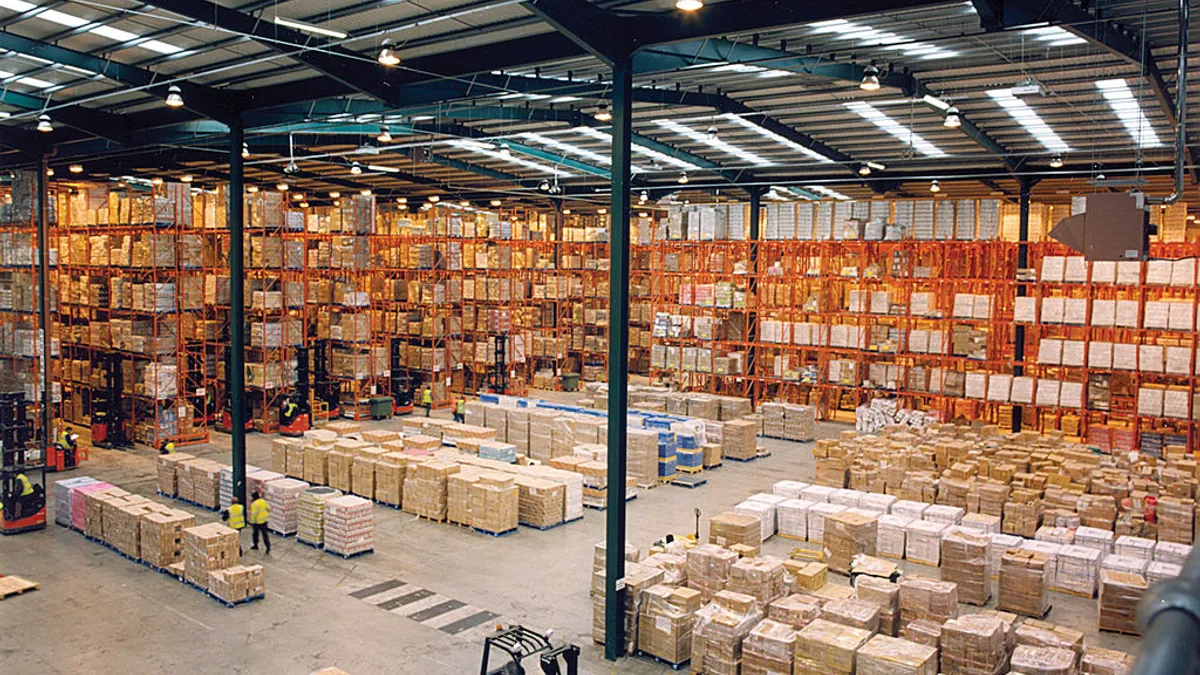Dive Brief:
- The U.K.'s manufacturing Purchasing Managers’ Index (PMI), a measure of performance in the manufacturing sector, reached a three-month low of 52.8 in January. The value above 50, however, still indicates growth in manufacturing compared to last month.
- Companies reported greater levels of purchasing and stockpiling as the U.K. prepares for Brexit, according to IHS Markit and CIPS, which compile the index.
- "Stocks of inputs increased at the sharpest pace in the 27-year history, as buying activity was stepped up to mitigate against potential supply-chain disruptions in coming months," Rob Dobson, director at IHS Markit, said in a statement, referring to potential disruptions from a no-deal Brexit.
Dive Insight:
While manufacturing continues to grow, this three-month downturn is a sign of decelerated growth in the manufacturing sector. And other trends, including low output and manufacturing job cuts in January, show worrying signs for U.K. manufacturing.
Companies are worried about the potential for a "no-deal" Brexit, which will happen if a withdrawal treaty isn't signed by March 29, 2019. If this happens, EU rules and regulations will stop applying to the U.K., and trade between the two blocs will become much more complicated.
"Businesses did their best to develop forward purchasing programmes to avoid potentially disappointing clients and in case of a bad Brexit outcome with some of the sharpest rises in raw materials and finished goods stockpiling since the survey started in January 1992," Duncan Brock, the group director at the Chartered Institute of Procurement and Supply, said in a statement.
Drug companies are concerned about how Brexit could affect their supply chains, and have begun stockpiling weeks of medicine. Novo Nordisk decided to increase insulin stockpiles by 18 weeks by the end of March. Others are worried about the U.K.'s food supply, 30% of which is imported from the EU, according to Time.
Companies need "to ensure warehouses are well stocked to meet ongoing contractual obligations," according to Rob Dobson, the director at IHS Markit.
These increases in prepurchases and stockpiling didn't translate to higher output or new orders, though, as levels there "remained lacklustre at best," Dobson said in a statement.
Stockpiling isn't the only change businesses are making to avoid a large Brexit-induced fallout. A recent poll of 1,200 members of the Institute of Directors found 29% are either planning to or already have moved parts of their business to avoid any disruption. Of those planning to move, 69% were planning to move to an EU state, according to The Week.
This story was first published in our weekly newsletter, Supply Chain Dive: Operations. Sign up here.














